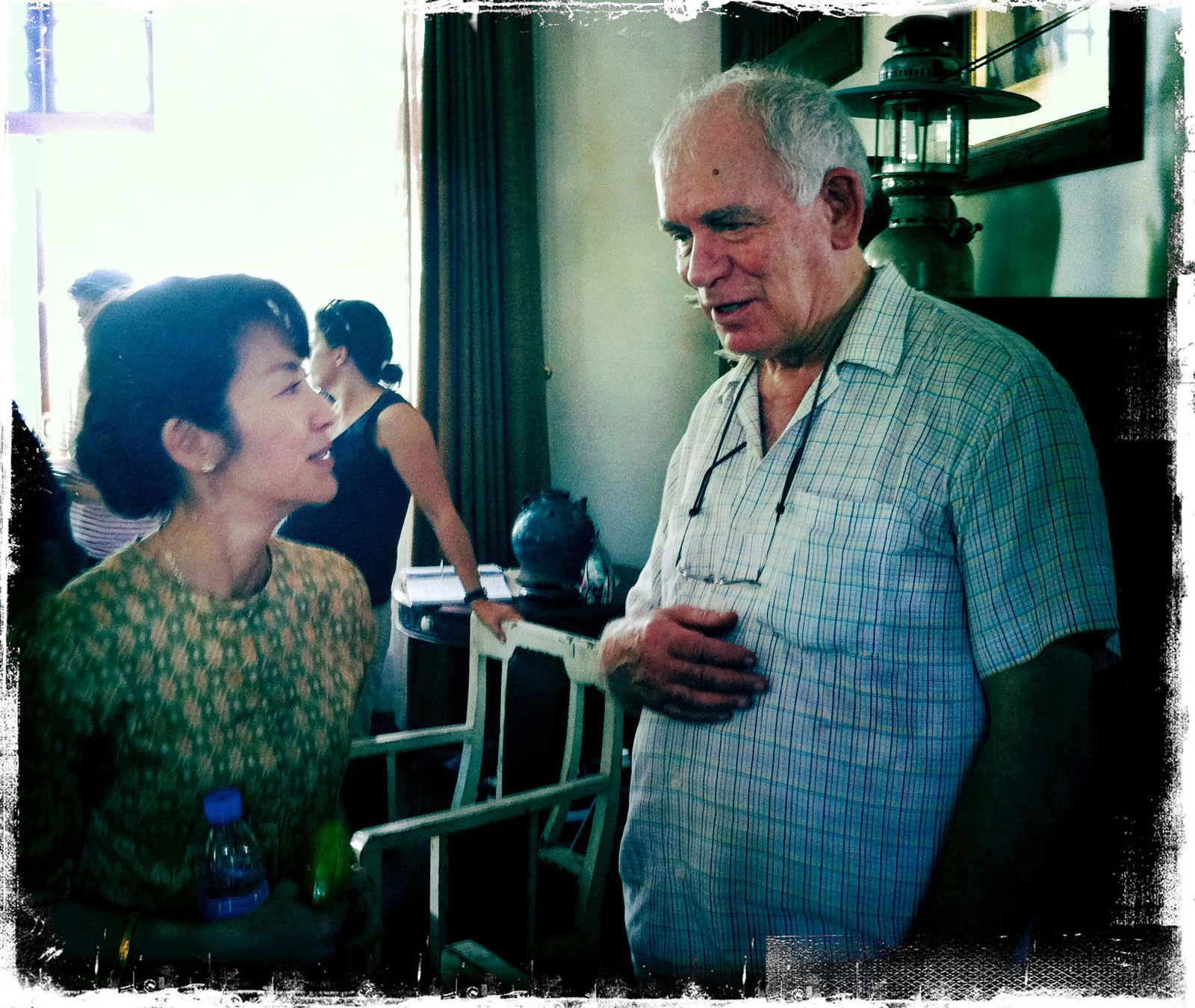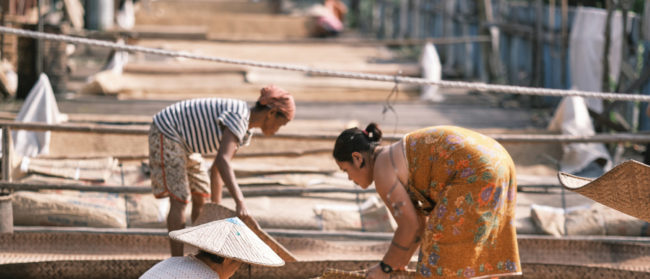In most Hollywood films, Aung San Suu Kyi’s story would have cut to black in November 2015. The score crescendoing as she sweeps to power surrounded by jubilant supporters, dreams realised, hope restored. The credits roll.
The youngest daughter of General Aung San, the architect of then-Burma’s independence from the United Kingdom, Aung San Suu Kyi became a symbol of human rights and democracy while under house arrest for 15 of 21 years between 1989 and 2010 for her role in the 8888 Uprising opposing the country’s oppressive ruling military junta.
Released in 2010, and picking up the Nobel Peace Prize two years later, it would be in late 2015 that she would win a sweeping election victory with her National League Democracy (NLD) party, ending decades of military rule and becoming Myanmar’s de-facto leader.
But as would be the case if the cameras kept rolling in each Hollywood epic, the flaws in our protagonist emerged and our once infallible heroin became definitively more human in the years after.
Elected on a human rights and national reconciliation platform backed by the country’s many ethnic minority groups, Aung San Suu Kyi’s fall from grace internationally since taking political office in 2015 has centred around the plight of the Rohingya in Myanmar’s Rakhine state.
A long-persecuted ethnic minority group in the country’s west, denied Myanmar citizenship, there was great hope among the Rohingya community that the ascending of Aung San Suu Kyi to high political office would manifest as improved rights for their community.
Instead, under her watch the Rohingya have experienced perhaps their most violent period of persecution in Burmese history with “clearance operations” by the country’s military that began in August 2017, labelled a genocide by the international community. Aung San Suu Kyi has repeatedly refused to acknowledge these violent acts, and has even seemed to side with her former oppressors, labelling the military generals in her cabinet “rather sweet” in 2018. The completion of her fall from grace in the eyes most occurred in December last year as she defended her country’s actions at the International Criminal Court in the Hague, denying any genocide had taken place.
A figure and cause fuelled by such hope, instead has since been revealed to run on some of the same components as the military men that came before her. But it is the juxtaposition between the ‘before’ and ‘after’ of Aung San Suu Kyi’s ascent to power in 2015 that warrants reflection.
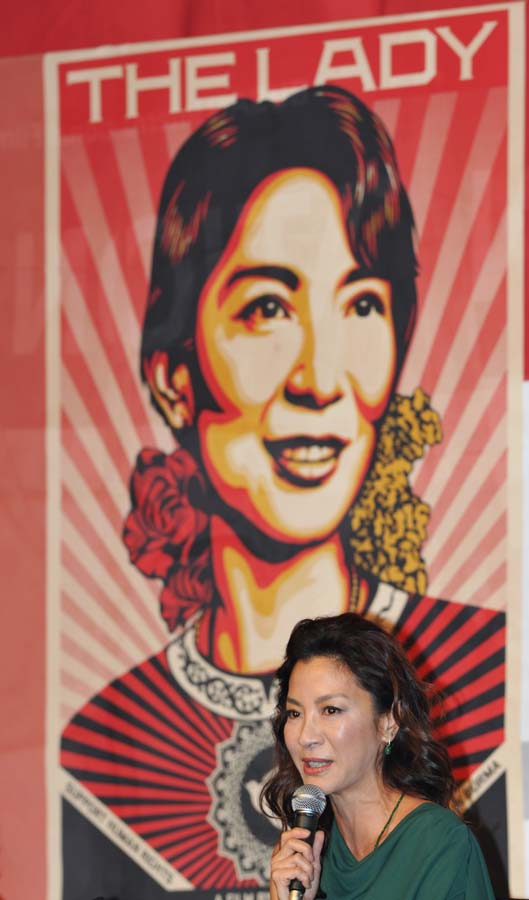
While history will be condemning of what Aung San Suu Kyi has become, essential to understanding her most tragic of character arcs is the figure that came before
Today, on the 75th birthday of Aung San Suu Kyi, the Globe is turning back the clock to that period of the State Counsellor’s life filled with hope, fuelled by now lost support, by sitting down with Rebecca Frayn, screenwriter of The Lady.
A biopic shot in 2010 and released the following year, The Lady tells the story before the political leader – how Aung San Suu Kyi became a figure of hope across Burma, her personal journey into marriage with the late Michael Aris, a British historian, and mother to two sons.
Directed by Luc Besson and starring Michelle Yeoh as the titular character, the biopic coincided with the release of Aung San Suu Kyi from house arrest and helps paint an earlier picture of the figure, one seemingly more clear cut than the person we know today.
Frayn spent a significant amount of time researching Aung San Suu Kyi during this period in an attempt to accurately represent her for the screen. Trawling through archives, conducting interviews with those close to her, and even meeting with the identical twin brother of her husband, Anthony.
While history will be condemning of what Aung San Suu Kyi has become, essential to understanding her most tragic of character arcs is the figure that came before and her role in bringing about democracy for millions in Myanmar. Her story, if nothing else, acts as a cautionary tale against the canonisation of any individual.
The Lady is a fascinating film on an equally fascinating topic. How did that initial idea come about, to put together Aung San Suu Kyi’s story during this period, for the big screen?
I first visited Burma in 1991 when you were only allowed into the country if you signed up for an official government tour, where you were accompanied at all times by a minder.
From the outset it was a dispiriting experience. Every night we stayed in one of the bleak concrete hostels the military had built especially for tourists. And every morning we would board the rickety government bus and wherever we disembarked, the Burmese would sidle up, anxious to confide the depths of their misery and despair, whilst taking great care not to be overheard by our minder. And as we bumped across Burma on that rickety bus, we saw for ourselves how this country – once the richest in Asia – had been plundered and asset stripped by the military.
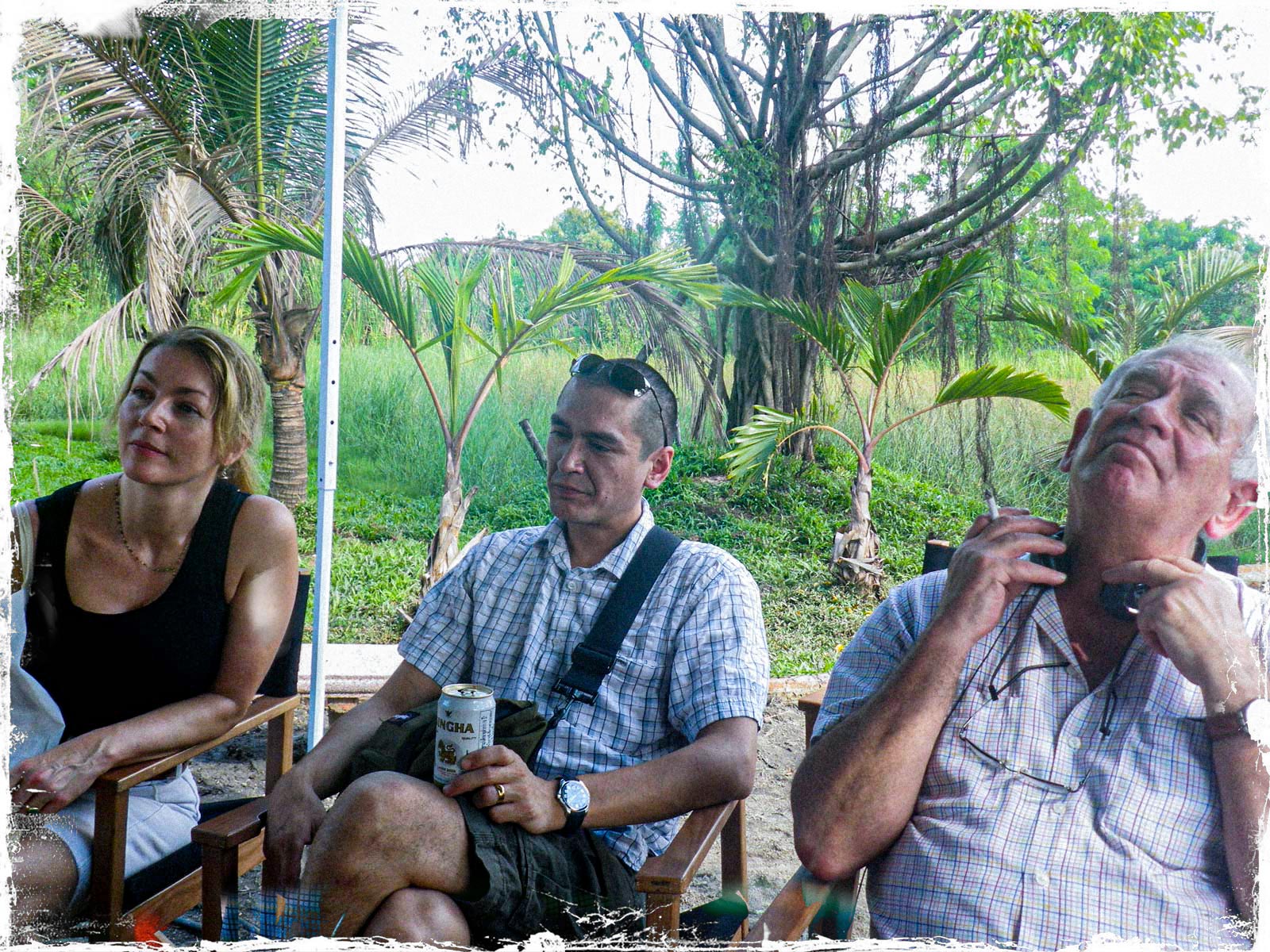
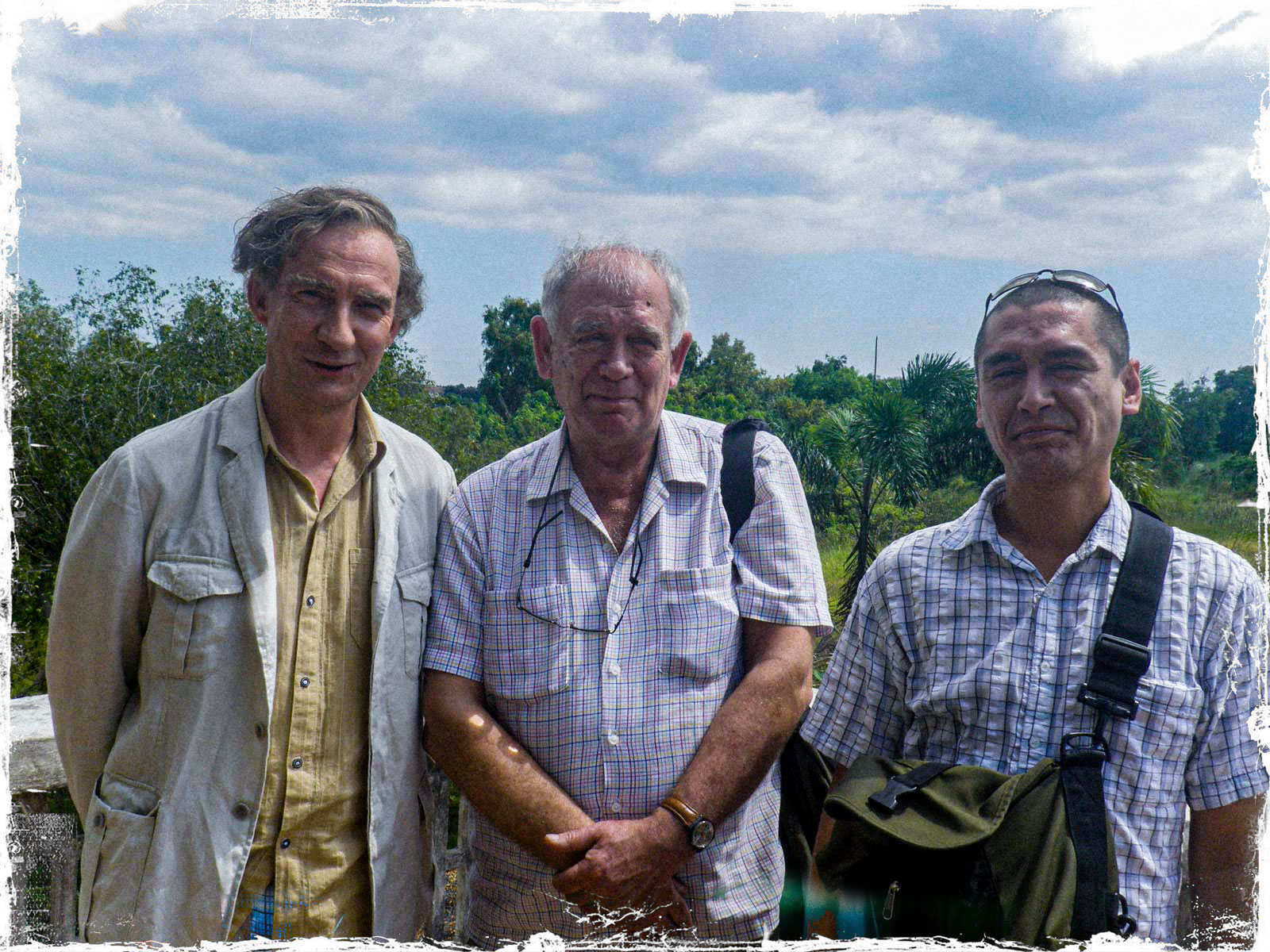
Two years before our arrival, Aung San Suu Kyi had been placed under house arrest, before going to win a remarkable and historical landslide election victory. You had only to mention her name for people’s faces to light up. The people clearly saw her as the reincarnation of her legendary father, the celebrated architect of Burma’s independence, General Aung San, who was assassinated in 1947, just six months before independence when she was only two.
In the years afterwards I could never forget how her unseen presence offered these profoundly demoralised people such palpable hope. How in their darkest hour, they felt she waited, like a mythical saviour, whose moment to offer salvation would one day come. In time it dawned on me that the scale and pathos of the story would make a wonderful film that might just help get her liberated.
For such a sensitive topic, and for such a significant figure, I’m assuming a large amount of research had to go into writing about Suu Kyi and this period?
The original idea was to use the letters Suu Kyi and her husband Michael Aris had exchanged while she was under house arrest in Burma, but it turned out they were all in the Bodleian Library in Oxford under lock and key for fifty years. So, I read all the books about her that I could get my hands on and went to see as many people as I could who knew her. What was challenging for the portrayal of her was that she came across as so austere – austere and highly principled. And since it’s famously observed that it’s easier to tell the story of a saint than a sinner, this presented me with a challenge!
Initially my research was also hampered by the fact that Michael, despite being key to the whole story, had kept his tracks well hidden. Books and articles made only fleeting mention of him and I soon learnt that friends and family were long accustomed to being extremely cautious in what they would say. The rare interviews he gave were oddly formal and stilted, as if he feared he might be letting Suu down by breaking cover.
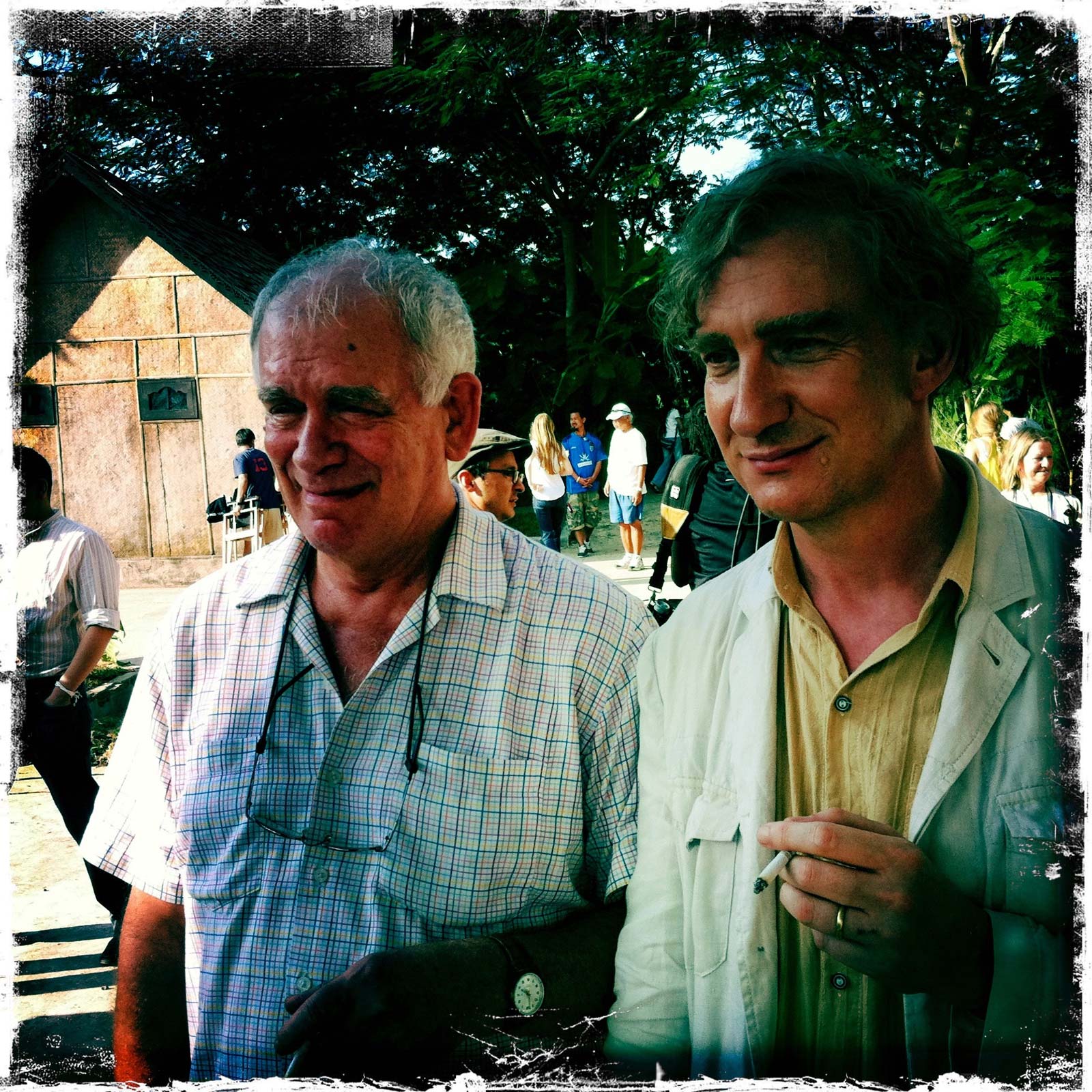
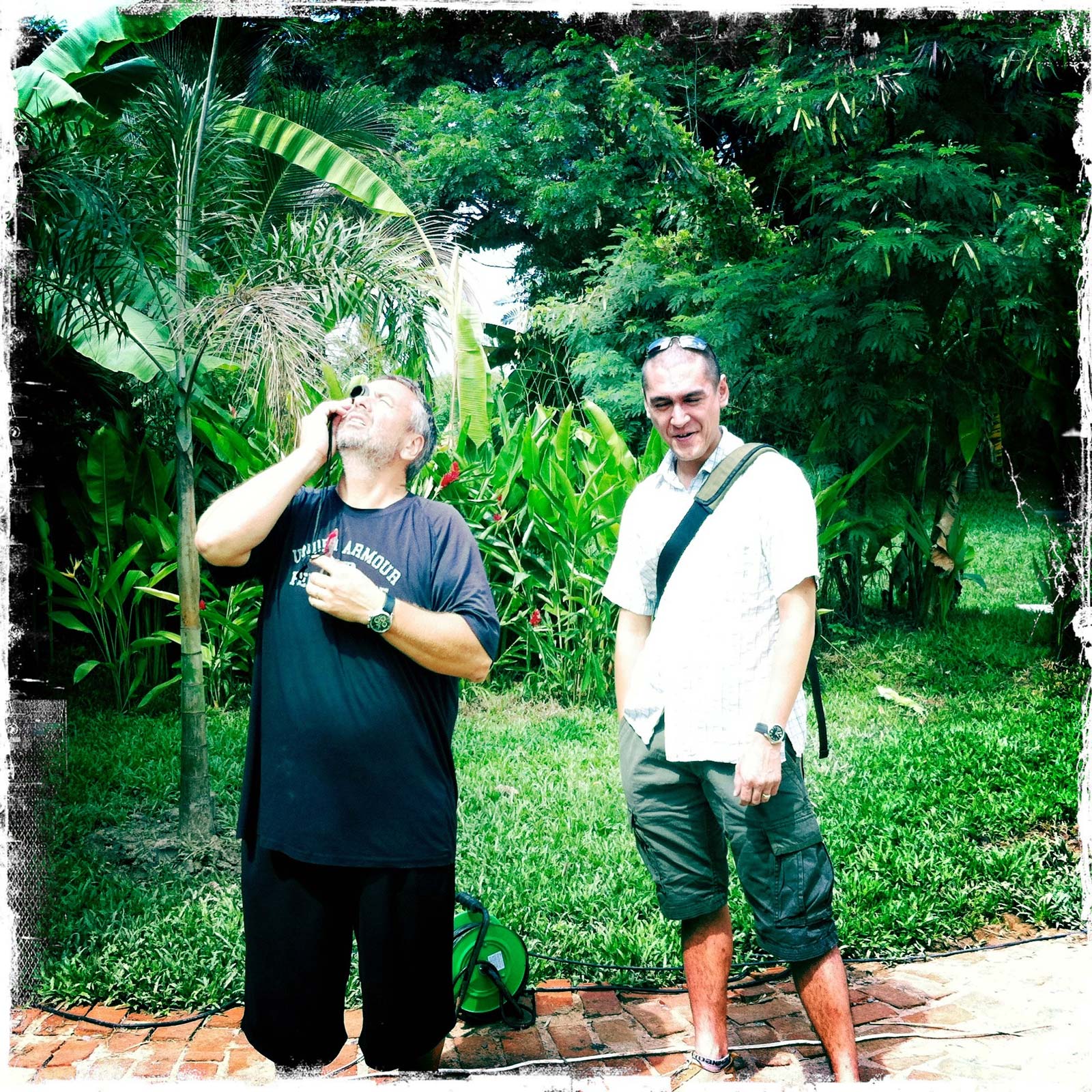
Rather remarkably however, Michael had an identical twin brother Anthony, who was at that point living in Thailand. We began emailing and when he learnt I was not only the mother of identical twins but had made a documentary film on the subject, he agreed, cautiously, to talk to me. And it was only when he returned, some months into my research and we finally met, that I had a great conceptual breakthrough.
Into the room strode Michael’s living physical embodiment, and though everyone says Michael was a much more serious character than Anthony, I suddenly understood who Michael was – not awkward and formal at all – but a little like his brother, an extremely warm and rather eccentric man whose extraordinary devotion to Suu had been fired by a wildly romantic nature.
The film had to be shot in Thailand and under a fake name in case the authorities got wind of the subject matter and panicked that they might be seen to be supporting a project that would make the Burmese military angry
In attempting to bring your script to the screen, was it possible to, in some form, communicate with Aung Sun Suu Kyi?
I sent Suu a letter while she was under house arrest to tell her about the project, but I was told that we would never get a reply and we would never know whether she had actually received the letter – which was indeed what happened. But her British-based family were always vigilant to try and do the right thing by her. They carried a huge burden in her absence and did everything they could to support her and the cause of democracy in Burma and they kept a close eye on the script on her behalf.
You were in Thailand, which doubled as Myanmar, during filming – what was that process like as a whole?
The film had to be shot in Thailand and under a fake name in case the authorities got wind of the subject matter and panicked that they might be seen to be supporting a project that would make the Burmese military angry with them. It was amazing to turn up on set in Thailand and discover the construction team had duplicated Suu’s house in every detail. Though they didn’t build the lake her house over looks – that had to be added on CGI! But it was unnerving making it under such cloak and dagger circumstances. In order not to alert the Burmese authorities, we also had to make sure there wasn’t a single reference to the film on the internet during that period.
During filming, what was it like to see your writing, and the character of Suu Kyi, come to life? Did the magnitude of the story and topic really become apparent?
It’s always very surreal to see a story you’ve laboured so long and hard over all alone suddenly springing into life with a small army of people rushing around to make it happen. She’d been under house arrest for [15 of] 21 years by then and the magnitude of that time really sank in as I watched Michelle Yeoh begin to embody her life in captivity. At the time we all really hoped the film would remind the world of her long incarceration.
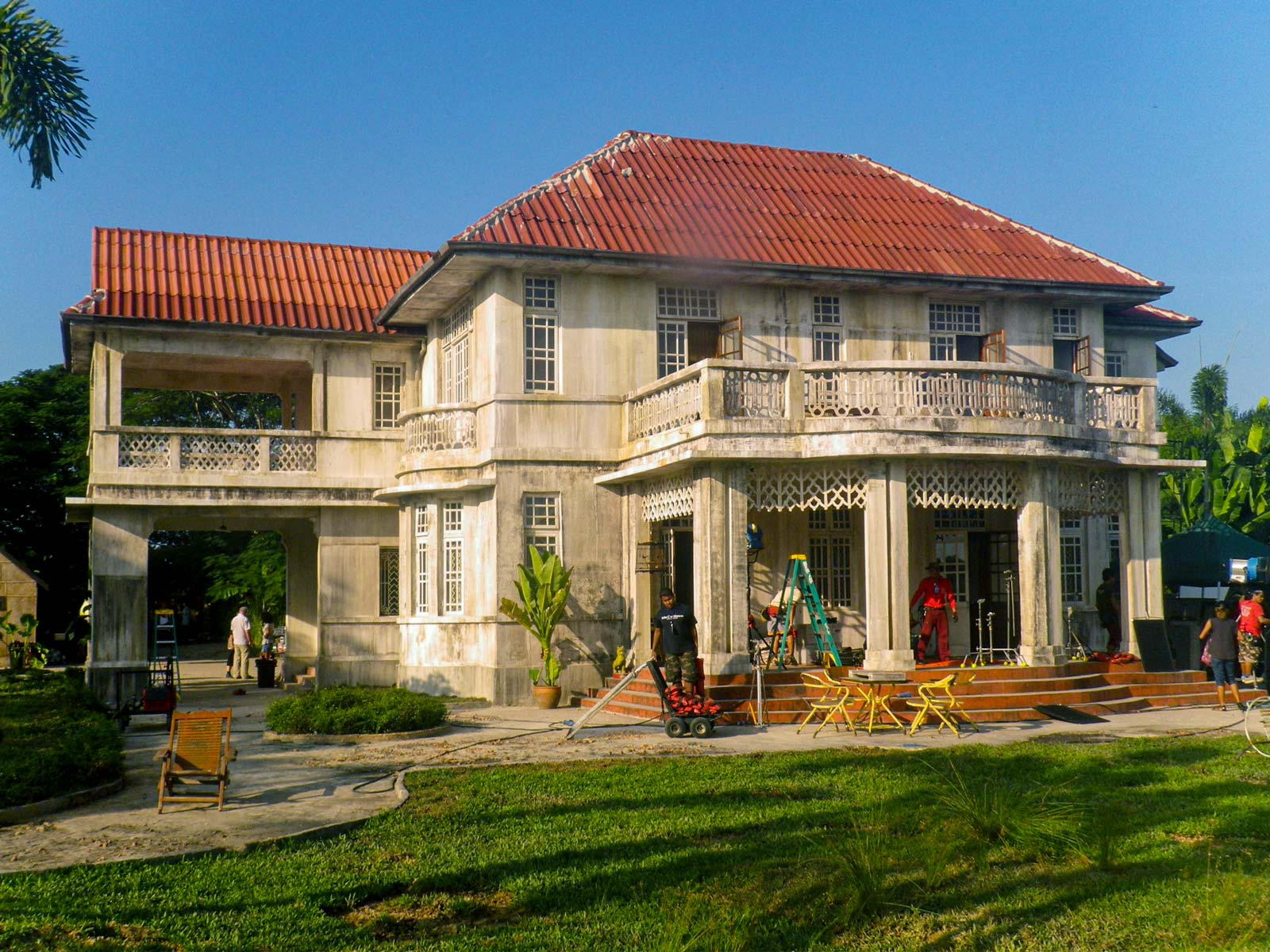
I read that while in Thailand filming, Suu Kyi was released from house arrest. That must have been a surreal piece of news to come through! How did the whole production team react?
Amazingly, halfway through the shoot, Suu Kyi was released from house arrest after [15 of] 21 years and came down to toast the delighted crowds that had gathered beyond her garden wall on University Avenue. The production team were euphoric, and filming was suspended in order to watch the whole thing play out on CNN throughout the entire night.
The actors playing her and her husband – together with her real son Kim who happened to be visiting, all toasted her image on the screen with champagne. At some late stage in the proceedings the actor playing her deceased husband’s phone rang, and it was Aung San Suu Kyi herself politely asking if she could speak to her son Kim. He had to explain he was on the set of a film that was dramatising her life story and standing beside the actress who was playing her. Suu Kyi asked to speak to Michelle Yeoh who took the phone in a bit of daze.
Fact and fiction became strangely blurred that night! I don’t think anyone who attended that party will ever forget it.
I’ve heard that Suu Kyi asked for a copy of the film, do you know if she has managed to watch it yet?
Everyone connected to the project would love to know if Suu Kyi has ever actually watched the film! And I do believe she has a copy. But I was also told that she had said she would never be able to watch it – that it would just be too painful. The film charts her marriage to Michael Aris and how even when he was dying the authorities wouldn’t let him come to say goodbye to her. I think it’s probably a chapter in her life that she would prefer to leave closed.
This interview has been edited for length and clarity.
Rebecca Frayn’s new film Misbehaviour is now available to digitally download across Curzon, iTunes, Sky Store, Amazon Prime, Google Play, Rakuten Chilli and BT TV. Starring Kiera Knightley, Gugu Mbatha-Raw, Jessie Buckley, Keeley Hawes, Phyllis Logan, Lesley Manville, Rhys Ifans and Greg Kinnear.
